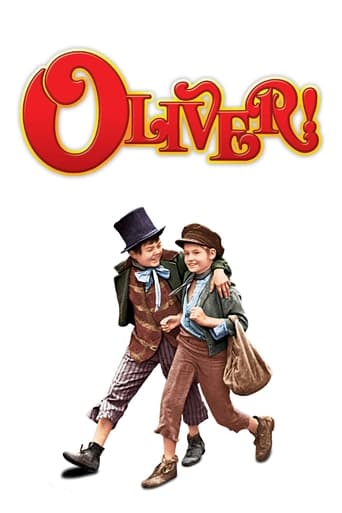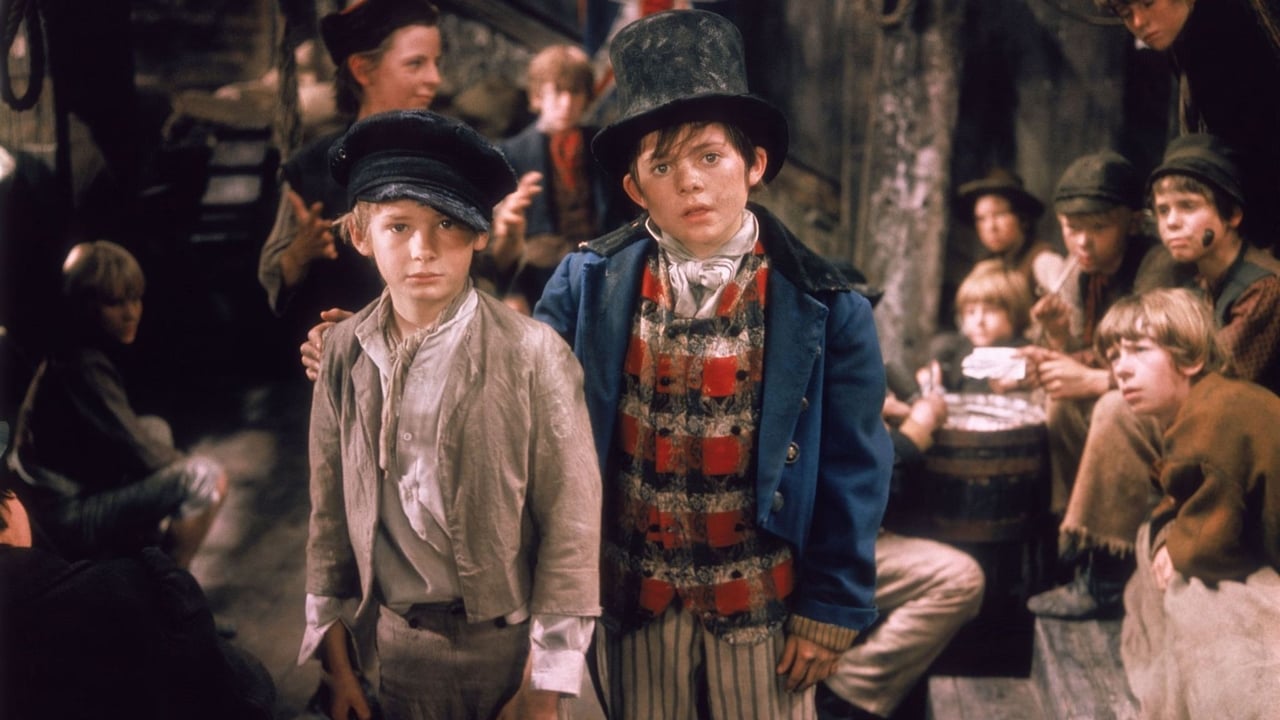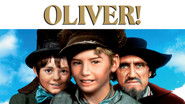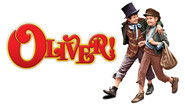James Hitchcock
For a long time it was assumed that there were certain film genres which we Brits just didn't do. These included Westerns (obviously) and also cartoons; "Animal Farm" from 1954 was the first British animated feature, and for a long time thereafter about the only one anyone could name. And musicals. Although plenty of musicals were written for the West End stage, few of these ever found their way onto the screen. There were musicals set in Britain, like "My Fair Lady" and "Mary Poppins", but both were made in America by American studios. And then, suddenly, along came "Oliver!"- an all-singing, all-dancing screen musical in the best Broadway/Hollywood tradition, made in Britain by a British studio with a British director and all-British cast. Far from resenting this invasion of what had traditionally been their territory, our American friends loved it so much that they gave it a "Best Picture" Oscar for 1968.I won't set out the plot because it is so well known. It is essentially that of "Oliver Twist" with a few alterations. The Monks subplot is omitted altogether. (No great loss). Oliver's home town, never named in the book, is established as Dunstable. (Dickens describes it as being about a hundred miles north of London, considerably further north than Dunstable. Was this change made to hide the fact that Mark Lester does not speak with the Midlands accent which Dickens' character would have had?)The biggest change is in the character of Fagin, portrayed here as a loveable old rogue rather than Dickens' cynical corrupter of youth. This change was probably motivated by concerns over Dickens' perceived anti-Semitism; both Lionel Bart, who wrote the stage musical on which the film was based and Ron Moody, who created the character of Fagin, were Jewish. When I first saw the film I did not like this change, but having seen the film again recently I am prepared to change my mind. Making Fagin into a kindly, if less-than-honest, father-figure may in fact have strengthened Dickens' theme of poverty as a cause of crime rather than weakening it. His boys invite the new arrival Oliver to "consider yourself one of the family", and whatever else Fagin may have done he has at least provided them with the only family they are ever likely to know. For them the only alternatives to life as part of this family are either beggary or a workhouse like the one from which Oliver has just escaped. Picking pockets is a minor crime compared to the ones of which the Victorian Establishment were guilty, like imprisoning paupers and orphans in workhouses. "Oliver!" was nominated for eleven Oscars and won six, a remarkable feat for any film but even more so for a British film which stars few, if any, actors who would have been internationally known in 1968. Moreover, few would have been household names even in Britain, apart from Oliver Reed (nephew of the director Carol Reed) as the thuggish criminal Bill Sikes and the well-loved, genial comedian Harry Secombe, cast against type as Mr Bumble, the pompous and heartless overseer of the workhouse. I have never thought that Lester, who comes across as too well-scrubbed and middle-class to be credible as a workhouse boy, was the ideal choice to play Oliver, but with that caveat the acting is generally of a very high standard, with fine contributions from Reed, Moody, Secombe and the young Jack Wild as the Artful Dodger. Special mention should go to Shani Wallis (an actress I have never seen in any other film) in the difficult role of Nancy. Nancy is a prostitute (although this aspect is played down in the film to keep the family audience), the associate of a gang of thieves and the mistress of a violent criminal. Yet she is also the film's heroine, someone with whom the audience must sympathise as she struggles to reconcile her innate decency with the realisation that the man with whom she has fallen in love is not just bad but irredeemably bad. Her dilemma is expressed in the film's most heart-rending song "As Long as He Needs Me", although Nancy also gives expression to the lighter, fun-loving side of her nature in "It's a Fine Life" and "Oom-Pah-Pah".The musical numbers are nearly all tuneful and memorable, with some fine lyrics. Besides those already mentioned the ones that stood out for me were "Food, Glorious Food", in which the workhouse boys sing of their hopes of a better (or at least better-fed) life, "You've Got to Pick a Pocket or Two" and "Reviewing the Situation", in both of which Fagin sets out his cynical philosophy of life, and screenplay directed by and "Consider Yourself" and "Who Will Buy?", both exuberant song-and-dance numbers set against a vividly recreated Victorian London. Yes, "Oliver!" can be sentimental at times, but that is something often associated with the musical genre, and also often with the novels of Dickens, a man never afraid to wring his readers' hearts. Watching the film again recently I was surprised by just how well it still stands up today, fifty years after it was made, as a rare example of the Great British Musical. 8/10A goof. One of Nancy's friends wears a bright purple dress. Later in the 19th century purple was to become a popular colour for all social classes, before the invention of synthetic dyes in the 1850s) there is no way a working-class girl could have afforded such a thing. At the time the film is set (the late 1830s), purple dye was notoriously expensive and reserved for the wealthy; there is a reason why royalty are said to be "born to the purple".
lucaspd-99044
Carol Reed was a genius, he was the man who conceived The Third Man and The Fallen Idol, great movie thrillers. So the director who made one of the biggest noir movies in film history, decides to adapt, the "classic" by Charles Dickens, Oliver Twist, book that I do not particularly like. The film is full of mistakes, starting with the idea of transforming Dickens' work into a musical full of light and color with hectic choreography, in order to soften the tone of the work, deserves a seal of ridicule. The villainy of Fagins is another factor that has gone bad in the film, even the character itself is misunderstood by Ron Moody. Mark Lester, the protagonist of the film is very annoying. There is no memorable song (even Chicago has memorable music). And Carol Reed seems to have made the movie just to get some money to renovate the bathroom, it's obvious his bad luck. The pace is too much (I almost slept). At least the set design and costumes save the film. I did not understand the Oscars that this movie won, okay, Carol Reed's even I understand, it was more of his work, but, he won in place of Kubrick with 2001: A Space Odyssey was a gross slut from the academy. The other five Oscars should be why the year's voters were drugged. Anyway, ridiculous.
grantss
Oliver Twist is a poor orphan, living at a workhouse. He angers the powers-that-be at the workhouse when, one dinner, he asks for more food. They decide to sell him and he ends up working for an undertaker. The undertaker treats him badly and he escapes, heading for London. Once there he falls in with a gang of boys, thieves who steal for their adult leader, Fagin. Great musical adaptation of Oliver Twist, the Charles Dickens novel. I'm generally not into musicals but this works. The music isn't overdone and fits in well with the story, plus it propels the story along.Good performances all round.Won the 1969 Best Picture Oscar.
Richard Dominguez
I Really Really Tried To Write How Much I Love This Movie Without Turning It Into A Small Novel ... But I Can't ... So Let Me Just Point Out That At Times This Movie Makes Me Laugh, Jump For Joy, Fills Me With Sadness, Every Now And Then Brings A Tear To My Eyes And Then It Fills Me With Hope And Inspiration ... And Throughout The Whole Thing It Manages To Keep Me Singing Along To All The Songs ... The World Wide Winner Of 12 Movie Awards And 25 Separate Movie Nominations ... This Is An Amazing Story Put To Amazing Music And Allowed To Shine On The Big Screen ... The Actors Are "ALL" Flawless In Their Performances And The Scenery Capture Is Remarkable To Say The Least ... The Choreography Is An Amazing Undertaking And Achieves A Level Of Perfection I Have Yet To See In Any Other Musical ... Among It's Peers This Musical/Story Will Always Stand Over All The Others Before And After It



 AD
AD






